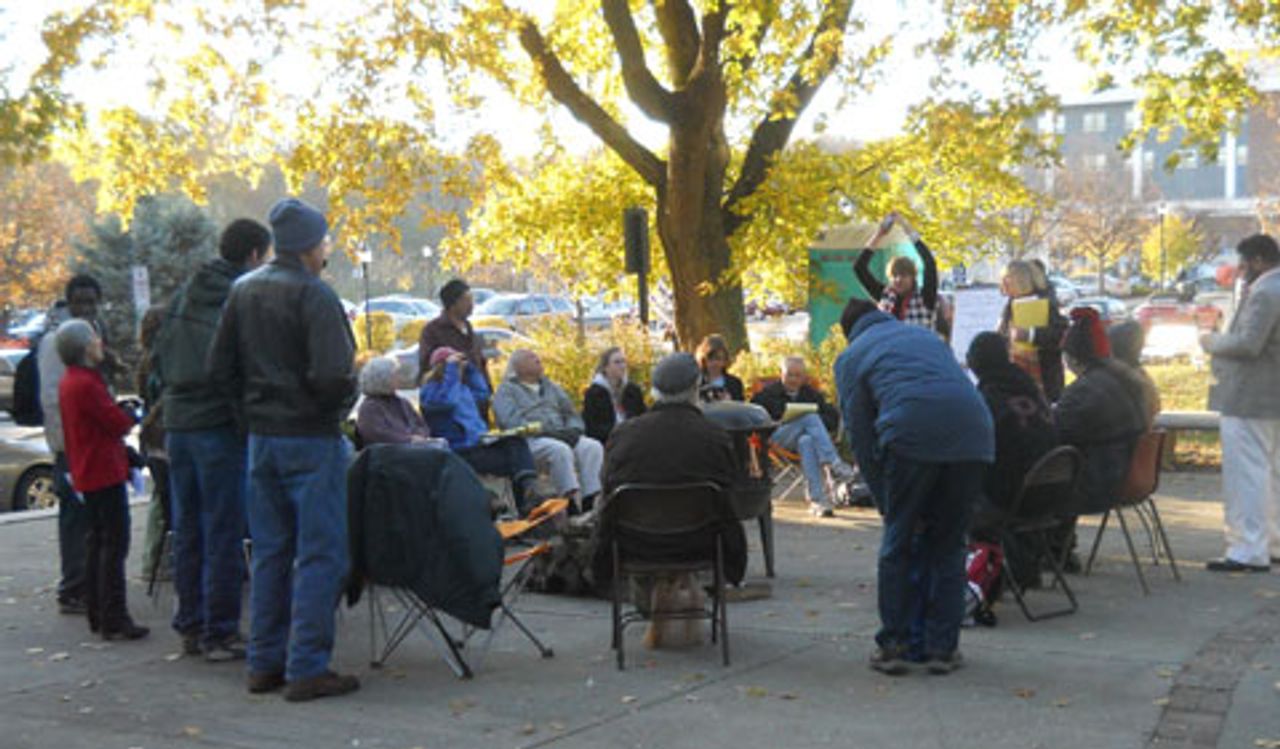Three separate occupations are continuing in the state of Maine, including Portland, the state’s largest city, the state capital of Augusta, and Bangor, the third largest city and a commercial center for eastern and northern Maine.
 The Occupy Bangor protest
The Occupy Bangor protestThe encampment at Portland’s Lincoln Park has been in place since September 30. In Augusta the protesters set up tents in Capitol Park, near the State House, on October 15. In Bangor the occupation is now in its third week.
The Bangor City Council threatened about 10 days ago to evict the few dozen protesters who were camping overnight in Peirce Memorial Park. In response, the occupiers set up their tents on the grounds of the Bangor Public Library. The local authorities have so far accepted this move, no doubt concerned that a confrontation might generate even greater support for the Occupy movement.
The library board voted by a 6-2 margin November 1 against a motion to forbid the protesters from camping at the library. The library director said that free speech rights under the First Amendment were involved—“They have the right to share their views with the public.” The chairman of the library’s board reported that there had been 30 phone calls in the hours after the report of the library’s decision, and they were unanimous in support of the Occupy protesters.
The WSWS spoke to several participants in the protests in Augusta and in Bangor. One young woman in Augusta, who had been a teacher, said that “capitalists are not listening to the earth—they are only taking from the earth.” Another participant, who had majored in computer repair, said that employers now demand at least three to five years’ experience. He said the Democrats are part of the system and would do nothing about the grievances of the working class.
In Bangor, an assembly/circle was held one day last week, at which participants spoke briefly. One 17-year-old student said her father is a teacher, but four or five jobs are required to keep the entire family going. A doctor from Eastern Maine Medical Center spoke on the inequality in the health care system and its impact on the poor and on wide sections of workers.
Another protester spoke on workers being forced to stay on the job past retirement age. In the course of the discussion, a supporter of the Socialist Equality Party spoke briefly on the political issues facing supporters and sympathizers of the Occupy movement, especially the need for a clear political break with the Democratic Party and those who give it backhanded support.
